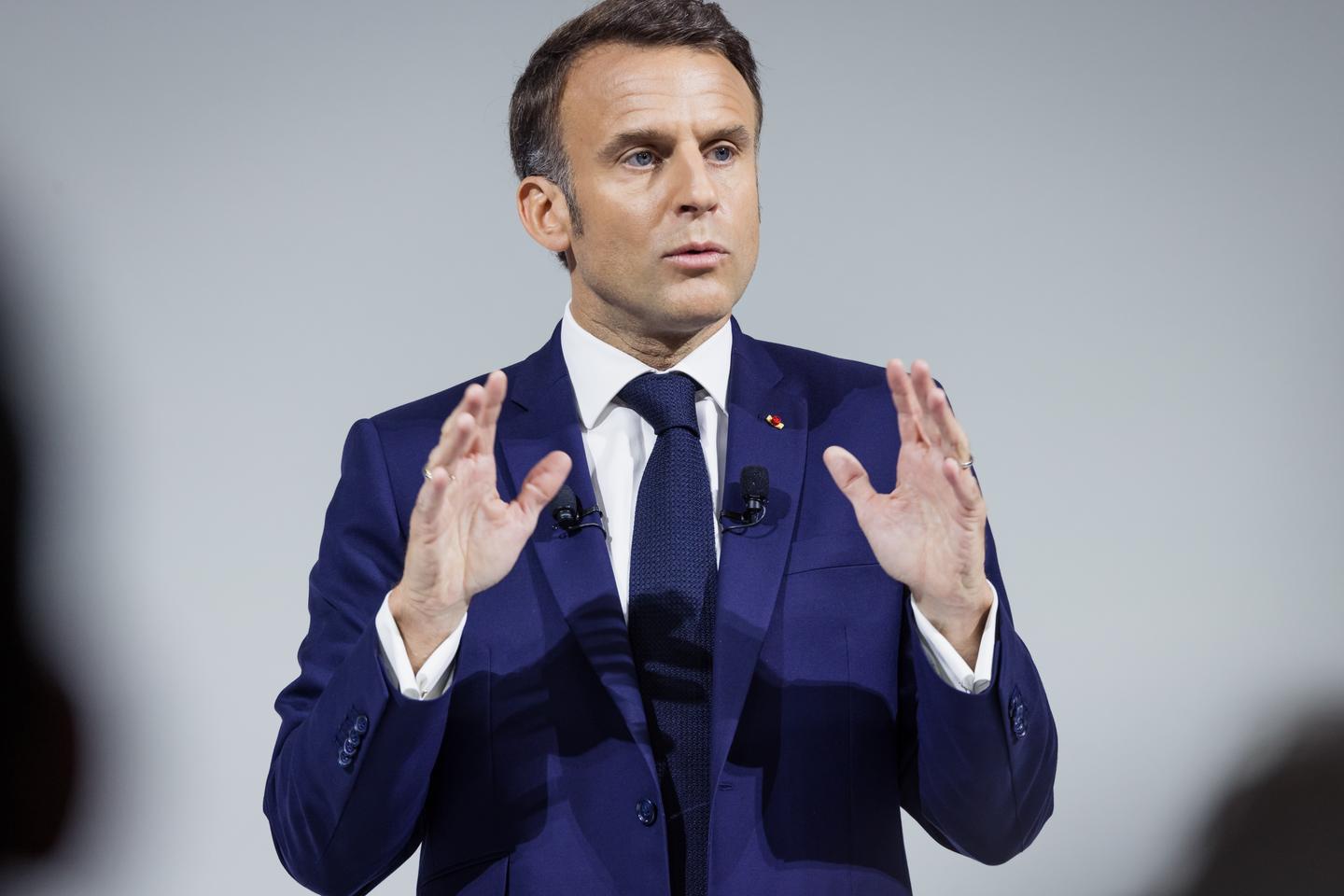


In 2017, Emmanuel Macron may have embodied hope, after the exhausting succession of governments on the right and left. Seven years later, the central space has taken on the appearance of a besieged citadel that the French president is trying to defend at all costs, using the only weapon he has left: drama. Macron's press conference on Wednesday, June 12, three days after his decision to dissolve the Assemblée Nationale in the wake of the disastrous European elections for the presidential majority, was marked by a call to action and a violent attack on the political parties on both extremes.
His attack is no longer aimed exclusively at far-right Rassemblement National (RN), but equally targets the left-wing La France Insoumise (LFI), who Macron accuses of threatening republican values by flirting with anti-Semitism, sectarianism and anti-parliamentary sentiment. Macron has to contend with the emergence, on the left, of a "popular front" different from the New Ecological and Social Popular Union (NUPES), but still under LFI to block the far right, the embarrassment of the social-democrat wing, the implosion of the right-wing Les Républicains (LR), whose excluded president, Eric Ciotti, rallied to the RN at the same time as Marion Maréchal, the lead candidate of Reconquête!. This has led Macron to attempt to re-establish a central bloc by pitting the far right and far left against each other, invoking an operation of "clarification" to open up a "battle of values."
Macron has had no trouble pointing out the ideological incoherence of the coalitions forming against him and while he has been able to denounce the risk of economic devaluation, social impoverishment and loss of influence in Europe and around the world. The main difficulty for him remains remobilizing the voters he lost between 2017 and today, not only because his policies have become right-wing, but because they have been powerless to counter the rise of the RN.
No breath of fresh air
Nothing in the priorities he has confirmed or the avenues he has outlined – a major debate on secularism, the banning of cell phones for children under 11, the removal of one level of local government, the possible abandonment of large regions – suggests a breath of fresh air. Worn down by the wear and tear of power and unpopularity, the French president has become, unwillingly, the umpteenth incarnation of a camp of reason that claimed to confront reality in order to better resolve difficulties, but ultimately came up against it like all the others. All the tricks conjured up in an attempt to rekindle disruption – flattering the "sovereign people," castigating the "spirit of defeat of the elites," denouncing the "tinkering of the apparatus" – have come to nothing.
The risky gamble of dissolution is that sharing the burden appears to be the best option when you're standing on the brink of an abyss. At the very least, this implies knowing how to reach out, listen and accept the proposals of those who make them, provided that the direction is shared. Cornered, Macron seems to have come to terms with this. He has reached out to both the Republican right and the Social Democrats. He spoke of a "federation of projects to govern," a belated offer of a coalition, the idea of which until now has appalled him. The fact that it took him seven years to realize that he couldn't do it all alone will remain his biggest failing.
